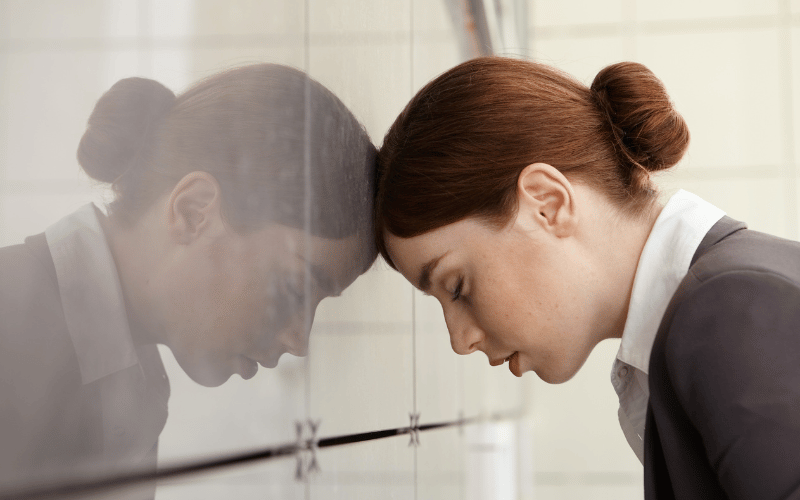Symptom 5: Daytime Fatigue and Drowsiness

One of the great misconceptions of sleep is equating duration with quality. You can be in bed for a solid eight hours and still wake up feeling like you’ve run a marathon. For those battling insomnia, this paradox is an all-too-familiar reality. Every morning, the eyelids feel heavy, and a weight seems to tether them to the bed. Despite the hours logged in, the restorative power of sleep eludes them. This isn’t just a matter of feeling groggy for a few minutes after waking; it’s a relentless exhaustion that persists, painting the day in hues of fatigue.
When sleep deprivation becomes chronic, it doesn’t just leave you with a physical sense of weariness; the brain bears the brunt too. Picture your mind as a processor. After a night of disrupted sleep, it’s like operating on reduced bandwidth. Tasks that were once simple become intricate puzzles. The focus wavers, darting between tasks without truly engaging. Memory gets fickle; names, dates, and even crucial details slip through the grasp. For the insomniac, every workday becomes an uphill task, each challenge magnified by the foggy cloud of drowsiness that mutes cognitive sharpness.
Beyond the cognitive, the emotional realm takes a hit too. Sleep acts as a reset button for emotions; without it, the world can seem overwhelmingly bleak or frustratingly irritating. The lack of sleep heightens emotional reactions. Minor inconveniences evolve into major irritants. The emotional roller coaster isn’t just hard for the individual but strains personal and professional relationships. Colleagues might find them snappy, loved ones might bear the brunt of mood swings, and the individual, trapped in this cycle, might find it hard to pinpoint sleep as the underlying culprit.
In a world that’s constantly on the move, chronic drowsiness isn’t just inconvenient; it’s downright dangerous. Behind the wheel of a car or when operating machinery, even a split second of inattention can lead to dire consequences. It’s not just about falling asleep but the reduced reaction time, the dulled judgment, or the split-second lag in decision-making. These microsleeps, brief episodes of sleep lasting a few seconds, might seem harmless. Still, in crucial situations — like driving — they can be the difference between safety and disaster.
Faced with this persistent fatigue, it’s natural to seek a quick fix. Enter caffeine — the world’s favorite stimulant. That morning cup of coffee or tea promises alertness, and for many, it becomes a lifeline. But there’s a catch. While caffeine does offer temporary relief, it interferes with the natural sleep-wake cycle. Moreover, with increased consumption, one risks jitteriness, increased heart rate, and even digestive issues. It’s a vicious cycle: consume caffeine to combat drowsiness, face disrupted sleep due to caffeine, and then reach for more caffeine to tackle the fatigue from said disruption. (5)